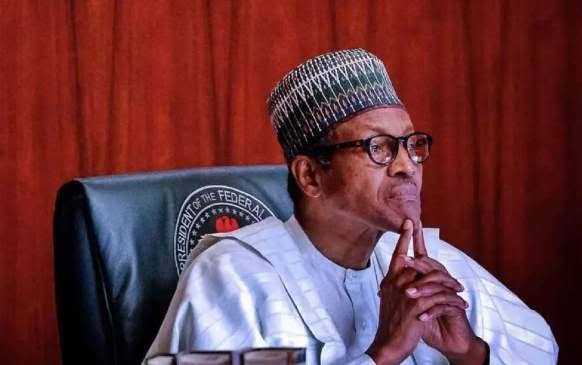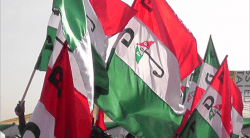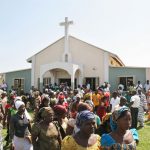President Muhammadu Buhari has been asked to publish details of loans so far obtained by his administration since May 29, 2015.
He is also requested to publish the interest rate, debts and the projects executed with the loans.
The Socio-Economic Rights and Accountability Project (SERAP) made the requests through a suit filed at the Federal High Court, Abuja, with Mr Abubakar Malami, Attorney General of the Federation and Minister of Justice; Ms Zainab Ahmed, Minister of Finance, Budget and National Planning; and Ms Patience Oniha Director-General of the Debt Management Office joined as respondents.
The suit was filed on behalf of SERAP by its lawyers — Kolawole Oluwadare and Adelanke Aremo as contained in a statement given to PerSecondnews.
No date has been fixed for the hearing of the suit.
Persecondnews recalls that Buhari recently sought the National Assembly’s approval for a fresh loan of $5.513 billion to fund the 2020 budget, critical projects, and support some states.
The National Assembly also recently approved a N850 billion and $22.79 billion loans.
SERAP’s demand is based on Freedom of Information (FoI) request dated 30 May, 2020 to President Buhari, expressing “concerns that while governments since 1999 have borrowed money in the name of Nigeria and its citizens, much of the funds have reportedly been mismanaged, stolen or squandered, leaving the citizens with the burden of having to repay these loans.”
SERAP wants an order of mandamus to direct and compel President Buhari to tell Nigerians the names of countries and bodies that have given the loans, specific repayment conditions, and whether any public officers solicited and/or received bribes in the negotiations for any of the loans, and if there is plan to audit the spending of the loans, to resolve any allegations of mismanagement and corruption.

It is asking the court to direct President Buhari to tell Nigerians if he would instruct the Independent Corrupt Practices and Other Related Offences Commission (ICPC) and Economic and Financial Crimes Commission (EFCC) to monitor the spending of all loans obtained since May 2015.
“Opacity in the spending of loans would continue to have negative impacts on the fundamental interests of citizens. Transparency would ensure that the loans are not diverted to private pockets, increase public trust that these loans would be used to benefit Nigerians, provide good value for money, and reassure Nigeria’s creditors.
 “This suit is permitted under the Freedom of Information Act, the African Charter on Human and Peoples’ Rights, and the UN Convention against Corruption to which Nigeria is a state party.
“While access to loans can provide indispensable resources, the mismanagement and squandering of any such resources would be counter-productive.
” Nigerians should no longer be made to repay debts incurred in their name but which have not benefited them in any manner, shape or form,” SERAP said.
It added: “The massive and growing national debts have continued to have negative impacts on socio-economic development and on Nigerians’ access to public goods and services, including quality education, adequate healthcare, clean water, and regular electricity supply.
“SERAP is praying the court to hold that the interest of the public in publishing the information sought is far greater than any other interest President Buhari may be trying to preserve.
“Transparency and accountability in the spending details of all the loans that have so far been obtained by the government, and those obtained by previous administrations would mean that the loans can help Nigeria to overcome its acute development challenges, and reduce the possibility of mismanagement and corruption.
“SERAP is seeking an order to direct and compel President Buhari to disclose information on details of spending of loans obtained by successive governments since the return of democracy in 1999, list of countries and bodies that have given the loans, and specific conditions of repayment of the loans.
“Obedience to the rule of law by all citizens but more particularly those who publicly took oath of office to protect and preserve the constitution is a desideratum to good governance and respect for the rule of law.
“The Nigeria Government has signed on to the Open Government Partnership (OGP) and the country is a state party to the UN Convention against Corruption and the African Union Convention on Preventing and Combating Corruption.”























Leave a comment